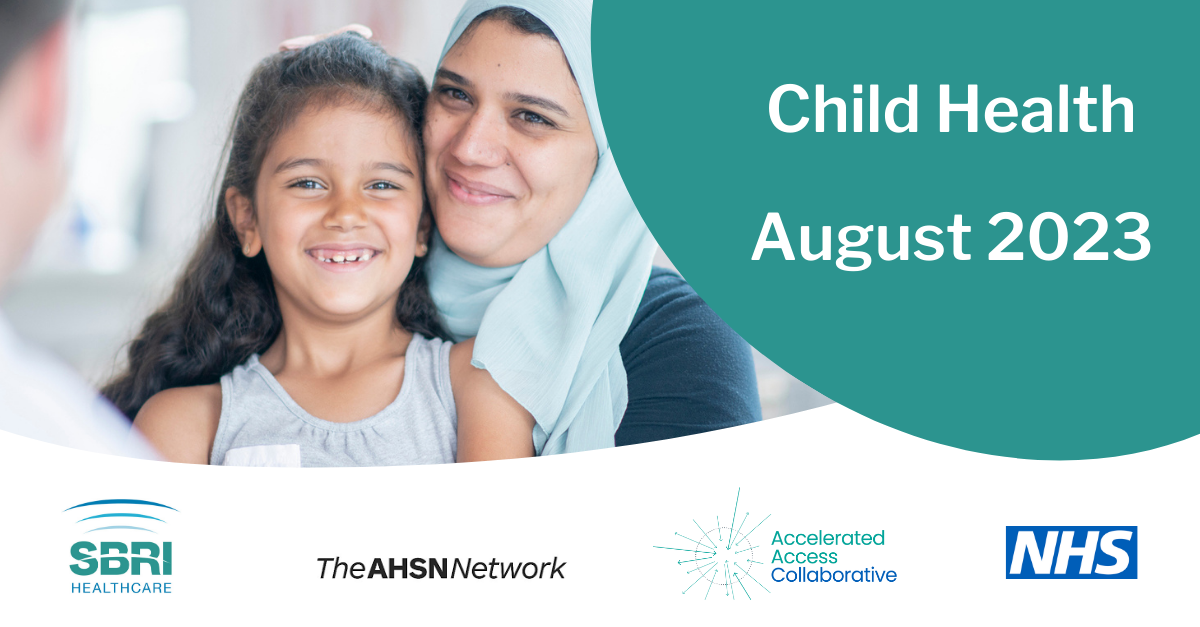
SBRI Healthcare is delighted to announce the launch of a new funding competition.
Competition 23: Child Health, funded by the Accelerated Access Collaborative and in partnership with the AHSN Network, seeks innovative solutions that improve the health and wellbeing of children and young people.
Children and young people (CYP) represent almost a third of the UK population and improving their health and wellbeing is a key priority for NHS England with CYP placed front and centre of the NHS Long Term Plan.
The Plan contains several measures which will, if implemented, make a real difference to the health and wellbeing of children. The vision for the NHS is that:
-
By 2028, children and young people in England will have better physical health, mental health and wellbeing
-
Children and young people, and their parents and carers, will experience a seamless service delivered by an integrated health and care system
-
There will be a skilled workforce that listens to, responds, and meets their needs
The competition seeks to address challenges in child health in two key focus areas:
Long term conditions - Many long term conditions develop during childhood. More children are presenting with multiple and complex morbidities requiring tailored management
-
Asthma is the most common long-term condition among children and young people and is among the top ten reasons for emergency hospital admission of children in the UK
-
Epilepsy is the most common long-term neurological condition of childhood
-
Diabetes is becoming increasingly common among young people in the UK, the majority due to Type 1 but there are growing numbers of Type 2.
Prevention of ill-health - Promoting healthy lifestyles and preventing people from becoming ill is key to reducing the existing and future burden of disease and ensuring that everyone can live long and healthy lives.
-
Obesity is a major area of concern, as obese children are highly likely to become obese adults, with an increased chance of developing a range of other health conditions
-
Oral health - Early intervention in childhood fosters healthy behaviours for life, notably in areas such as oral health. Tooth decay can lead to pain and time off school, resulting in loss of work for families, despite dental decay being almost always preventable
Health inequality is a core component of this competition, and equity of access and experience should be a central pillar of any successful innovation.
Applicants are asked to consider the impact of their innovation on the whole system and to be aware of the competitive environment, even considering working together with other companies and organisations to bring forward solutions that can make a real difference.
Phase 1 contracts are for technical and commercial feasibility testing and valued at £100,000 (NET) for six months. Phase 2 contracts for prototype development are worth up to £800,000 (NET), subject to budget availability, over one year.
How to Apply:
Please read the Guidance for Applicants - Phase 1, the Portal Guidance, the FAQs page and all the documents on this page before logging into the Application portal - Research Management System (RMS).
See a list of Phase 1 panel members
See a list of Phase 2 panel members
SBRI Healthcare Competition 23: Briefing Webinar: A video and a pdf copy of the slides can be found below
